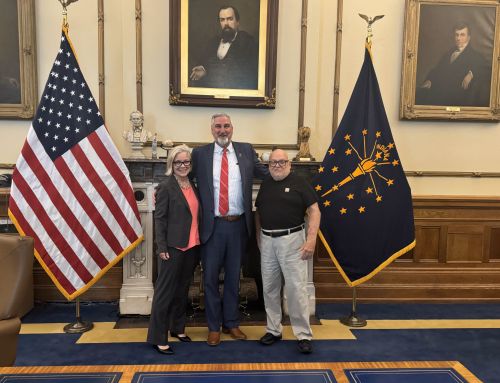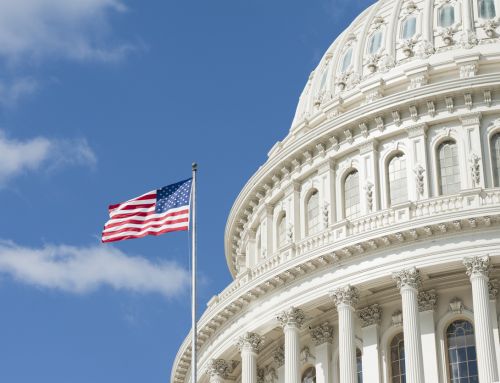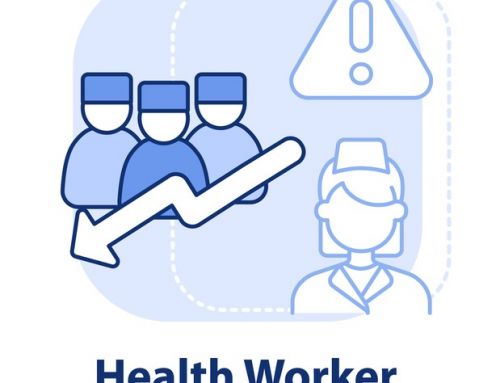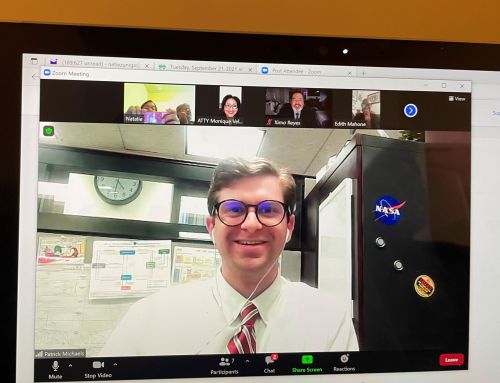Phyllis Borzi, Assistant Secretary
Employee Benefits Security Administration
Department of Labor
Washington, DC
John P. Albert, Director
Division of Medicare Secondary Payer Policy
Centers for Medicare and Medicaid Services
Baltimore, MD
Re: Discrimination against dialysis patients by BlueCross Blue Shield of Louisiana
Dear Ms. Borzi and Mr. Albert:
As America’s largest patient-led organization representing over 27,000 members, Dialysis Patient Citizens (DPC) works to improve the quality of life of all dialysis patients through education and advocacy. Today we are writing on behalf of the over 6,000 dialysis patients in Louisiana to request inquiries into the new BlueCross Blue Shield of Louisiana (BCBSLA) policy of no longer accepting third-party payments for premiums. As more fully set forth below, we believe this policy is in violation of laws under the jurisdiction of the Employee Benefits Security Administration and the Division of Medicare Secondary Payer Policy.
Dialysis patients are permitted to keep group insurance plans for the first 30 months following kidney failure in accordance with Medicare Secondary Payer (MSP) provisions. Many patients prefer their private insurance plans because they often offer coverage more generous than Medicare’s 80 percent. Supplemental coverage options for the remaining 20 percent not covered by Medicare are limited and expensive. By contrast, employer group health plans offer an average actuarial value of 88 percent, according to the Congressional Budget Office. For individuals with high medical expenses, this difference translates into significant reduction in out-of-pocket costs. In addition, patients may desire continuity of care from case managers who have assisted them as their chronic kidney disease progressed to end-stage renal disease (ESRD), whose services are not reimbursed in fee-for-service Medicare.
Adding barriers to third party payments infringes on patients’ right to take advantage of benefits associated with MSP provisions. Many new dialysis patients lose their livelihood due to burdensome treatment and recovery times, so their ability to afford insurance premiums is inhibited. Thankfully, financial assistance organizations like the American Kidney Fund (AKF) are able to help. However, BCBSLA’s new policy will interfere with third party payers’ ability to do so effectively.
In its statement announcing this policy (which has since been removed from its website), BCBSLA asserted that people “…deserve the opportunity to choose a plan, not be pushed or intimidated into a plan someone else chose for them.”1 Third party payments help dialysis patients maintain coverage through insurance plans chosen by the patient or spouse when accepting employment. Pushing people onto Medicare by adding unnecessary hurdles goes against the stated reason for this policy and, as is explained below, is illegal.
BCBSLA further justified its policy as fighting “fraud and abuse.” We are offended by the use of this inflammatory language, which could only have been directed at laypersons who are not familiar with the meanings connoted by these words. The term “fraud,” as generally understood in the healthcare field and restated by the Centers for Medicare and Medicaid Services (CMS) in a recent circular, means “…obtaining something of value through misrepresentation or concealment of material facts.” Abuse is defined as “…any practice that is not consistent with the goals of providing patients with services that are medically necessary, meet professionally recognized standards, and are fairly priced.”
BCBSLA’s use of these terms implies that dialysis patients’ care providers are lying about material facts: e.g., whether a patient’s kidneys have failed; or billing for unnecessary services. We are aware of no substantiated allegations of such fraud and abuse in kidney care. Indeed, treatment for kidney failure hardly lends itself to the type of overutilization that fraud and abuse laws are intended to address, since it lacks the “grey areas” that permit, say, overutilization of advanced imaging or cardiac stenting. What few grey areas that were open to such abuses disappeared with implementation of bundled payments.
Finally, the Inspector General for the Department of Health and Human Services determined in 1997 that third-party payments do not violate fraud or abuse laws: “Simply put, the contributions to AKF… are not made to or on behalf of beneficiaries. Moreover, while the premium payments by AKF may constitute remuneration to beneficiaries, they are not likely to influence patients to order or receive services from particular providers.”
HIPAA nondiscrimination violation
It appears to us that the “fraud and abuse” excuse is merely a pretext—and a rather thin one—for discriminating against ESRD patients based upon health factors, in violation of the Health Insurance Portability and Accountability Act. The only health plan enrollees who are likely to have premiums paid on their behalf by charities are those whose utilization exceeds the amount of the premium—that is, seriously ill patients. Under HIPAA, group health plans and health insurance issuers offering group health insurance coverage may not establish rules for enrollee eligibility (including continued eligibility) based on the health or disability of the participant or a dependent of that individual.
In addition, such plans may not require any individual (as a condition of enrollment or continued enrollment under the plan) to pay a premium or contribution which is greater than such premium or contribution for a similarly situated enrollee on the basis of any health status-related factor.
Classifying patients on the basis of how their premiums are paid is simply a proxy for singling them out based upon the disease with which the charitable organization making the payments is associated. BCBSLA’s policy will have the effect of dis-enrolling individuals on the basis of their health status and disability. Under HIPAA, such a policy in the group health market is illegal.
Americans with Disabilities Act
The ADA, 42 U.S.C. § 12101 et seq., prohibits the use of coverage limitations or exclusions in health insurance that are “disability-based distinctions.” EEOC Compl. Man. (BNA) (June 8, 1993) (Interim Guidance). “A coverage distinction is disability-based if it singles out a particular disability, a discrete group of disabilities (e.g., kidney diseases, cancers), or disability in general.” (Interim Guidance at 7). Therefore, issuers who impose coverage hurdles which disproportionately affect individuals with disabilities and health conditions are contrary to both HIPAA and ADA. BCBSLA is proposing to do exactly that with its policy.
Medicare Secondary Payer violation
The Medicare Secondary Payer statute permits ESRD patients covered by large employer group health plans to retain their commercial coverage for 30 months. There are two categories of eligible working-age patients: (1) those who continue to work and receive coverage as an employee benefit and (2) those who no longer work and are covered as dependents on a spouse’s coverage or through exercise of their COBRA rights. BCBSLA’s anti-dialysis patient policy is clearly aimed at those in the 2nd category, who are sicker and more vulnerable than patients who are able to continue working. These are the patients who are likely to require third-party premium assistance. The BCBSLA policy implements the MSP statute so that, practically speaking, it applies only to patients who continue to have current employment status with their employer. This undercuts Congress’ clear intent of applying MSP to anyone covered by large group employer-sponsored insurance.
Section 1862(b)(1)(C) of the Social Security Act provides that a group health plan “may not differentiate in the benefits it provides between individuals having end stage renal disease and other individuals covered by such plan on the basis of the existence of end stage renal disease, the need for renal dialysis, or in any other manner.” According to 42 CFR 411.161 (b) (ii), “differentiating” encompasses “imposing on persons who have ESRD, but not on others enrolled in the plan, benefit limitations.” BCBS is differentiating to the detriment of ESRD patients by refusing to honor a payment arrangement with an overwhelmingly disparate impact on them as a discrete group and clearly intended to discourage them from retaining their coverage.
The Medicare Secondary Payer statute was intended to save the Medicare Trust Funds money by limiting, to the extent feasible, Medicare coverage among working-age individuals who have not made a career’s worth of payments into the Hospital Insurance fund, and to permit ESRD patients to keep the health insurance they have. BCBSLA’s actions are contrary to the letter and spirit of this statute.
Finally, we would note that in removing its hyperbolic and disingenuous initial announcement from its website, BCBSLA seems to be conceding the lack of a legally justifiable rationale for its action. Presumably this withdrawal constituted a tactical retreat while BCBSLA formulates a more credible explanation. We would ask that you discount any rationales proffered after the fact.
Thank you for your consideration of our views. If you have any questions, please contact our Director of Government Affairs, Jackson Williams.
Respectfully submitted,
Hrant Jamgochian
Executive Director
cc: Michele Calandro, Senior Vice President and General Counsel, BCBSLA
Daniel Maguire, Director, Office of Health Plan Standards and Compliance Assistance
Deborah Perry, Director, EBSA Dallas Regional Office





















